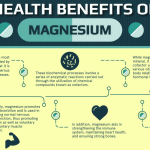#food #sight #smell #appetite #eat #hungry #weight
“The food environment Americans live in has a huge influence on food choices”–Paul Ebeling
The hormonal regulation of our food consumption is controlled by external stimuli. Researchers have proved something scientifically that we have always known: the appetite is stimulated by just the mere sight of tasty food.
Research on healthy young males has reported that the level of the neurosecretory protein hormone ghrelin within the blood will increase from visual stimulation from images of food.
Being a primary regulator, ghrelin has control over both eating behavior as well as the physical processes related to food metabolism. These outcomes reveal that, as well as the physiological mechanisms for the maintenance of the status of the body’s energy, environmental factors have a specific impact on food consumption too.
Therefore, the continuing and presence of tasty food in the media likely plays a role in weight gain.
In the future, dieticians could possibly be giving advice along the lines of: Refrain from taking a look at pictures of tasty food because it will make you hungry. It’s always been known that besides the physical regulating circuits for the maintenance of an adequate energy status for the human body, the sight as well as smell of food also has an effect on feelings of hunger and subsequent eating behavior. The risk that exposure to these kinds of images will lead to unneeded food consumption to maintain the human body’s energy level is especially high in our advertising and marketing focused society.
In a study of healthy male individuals, the scientists examined the molecular processes that control food consumption. They looked at the precise physiological reaction of the individuals to images portraying either non-edible objects or tasty food.
The concentrations of several hormones within the blood like grehlin, insulin and leptin, which are involved in the control of food consumption, were measured. They actually found that the amount of grehlin in the blood increases particularly in reaction to visual stimulation using images of food.
The results of the research show that the release of ghrelin in to the blood for regulating food consumption is controlled by external factors too. The human brain thus processes these visual stimuli, and the physical processes that regulate our perception of appetite are activated involuntarily. This mechanism can cause us to have a portion of cake just a couple of hours after breakfast. The researchers thus suggest that those with weight problems should if at all possible avoid taking a look at images of tasty food.
Eat healthy, Be healthy, Live lively









